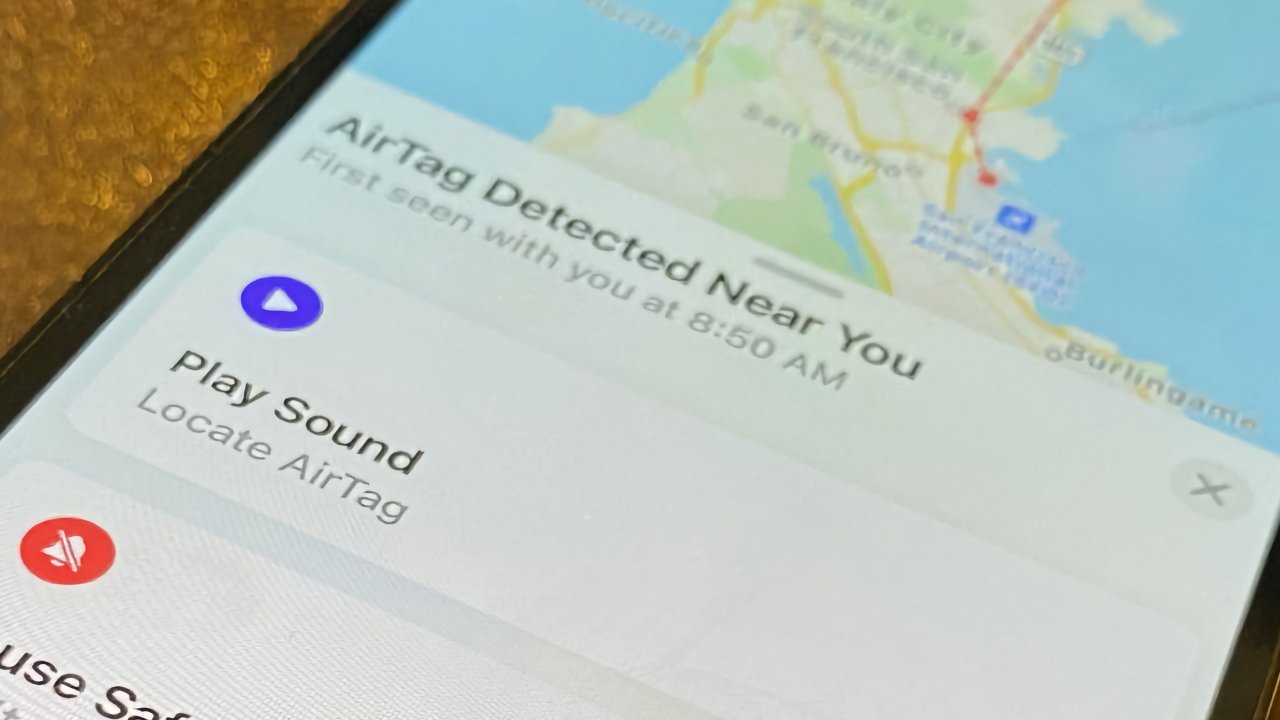Apple's AirTags anti-stalking features worked perfectly in an incident in Connecticut, but the stalker stayed free for almost a year because he refused to report to the police.

An AirTag alert on an iPhone
Apple's AirTags have put a spotlight on the issue of stalking, even though Apple's own anti-stalking features have not always been successful. Now a man in Bridgeport, Connecticut has been identified and charged because of the warnings at least one AirTag sent to a driver's iPhone.
According to WTNH, a woman whose name has not been disclosed, first received an alert of a device following her in February 2023. At the time, she believed it was because a relative had left behind a pair of AirPods in the car.
When she got a further alert on March 27, 2023, though, she searched her vehicle and discovered an AirTag. It had been stuck to the interior of her car's front driver's side wheel rim.
She took the AirTag to the Troop B Connecticut State Police, who using Apple's anti-stalking feature, were able to read the AirTag's serial number. Apple has previously said it will always identify an AirTag owner when requested by law enforcement, and in this case a man named Anthony Magro was quickly identified.
The woman being stalked confirmed that she did not know the suspect.
Identifying his name proved to be the only quick part of the police's work, though, as physically tracking him down took almost a year. They did reach him in May 2023, when he explained he'd moved to Bridgeport, but it's not clear how that contact was made.
It certainly wasn't in person, because reportedly Magro told them he could not come to Troop B's location because he doesn't drive.
On February 7, 2024, around 12 months after the first AirTag alert, Magro was taken into custody by local authorities and taken to Troop B.
Magro has subsequently been released on a $10,000 cash/surety bond, and will be arraigned at Torrington Superior Court on February 16.
Read the AppleInsider guide on what to do when an iPhone says an AirTag has been spotted following a user.
